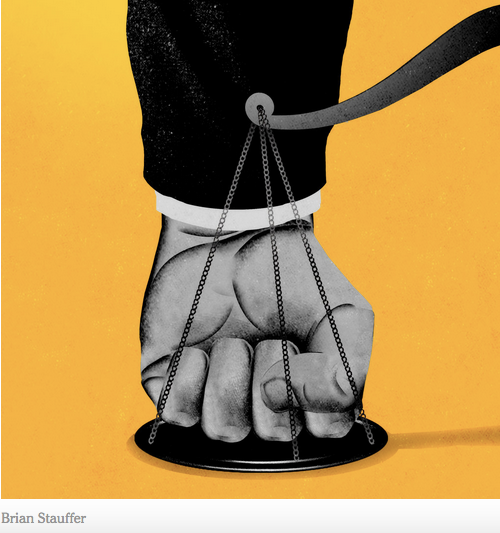Democracy isn’t possible without the rule of law — the idea that consistent principles, rather than a ruler’s whims, govern society.
You can read Aristotle, Montesquieu, John Locke or the Declaration of Independence on this point. You can also look at decades of American history. Even amid bitter fights over what the law should say, both Democrats and Republicans have generally accepted the rule of law.
President Trump does not. His rejection of it distinguishes him from any other modern American leader. He has instead flirted with Louis XVI’s notion of “L’etat, c’est moi”: The state is me — and I’ll decide which laws to follow.
This attitude returns to the fore this week, with James Comey scheduled to testify on Thursday about Trump’s attempts to stifle an F.B.I. investigation. I realize that many people are exhausted by Trump outrages, some of which resemble mere buffoonery. But I think it’s important to step back and connect the dots among his many rejections of the rule of law.
They are a pattern of his presidency, one that the judicial system, Congress, civic institutions and principled members of Trump’s own administration need to resist. Trump’s view of the law, quite simply, violates American traditions.
Let’s walk through the major themes:




